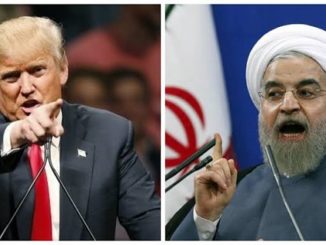- US President Trump has signed an executive order ending birthright citizenship in the country, despite the constitutional guarantee of American citizenship to all born on US soil.
- Trump’s order mandates federal agencies to deny U.S. citizenship to children born to illegally or legally present mothers, unless the father is a U.S. citizen or permanent resident.
- Starting 30 days from now, children born in the U.S. born to parents not holding American citizenship or green cards will be denied U.S. citizenship and passports.

On Monday night, newly inaugurated President Donald Trump enacted an executive order aimed at abolishing birthright citizenship in the United States, despite a prevailing legal consensus affirming that the Constitution grants American citizenship to all individuals born on U.S. territory.
This executive order instructs federal agencies to deny U.S. citizenship to children born in the country to mothers who are either undocumented or present on temporary visas, provided that the father is neither a U.S. citizen nor a lawful permanent resident.
Under this directive, children born in the U.S. will be ineligible for citizenship, including the issuance of passports, if at least one parent does not hold American citizenship or a green card, with the enforcement set to begin 30 days from the order’s signing.
A Supreme Court decision from over a century ago established that children born in the U.S. to foreign parents are entitled to U.S. citizenship under the 14th Amendment, with the sole recognized exception being for children of diplomats who possess immunity from U.S. laws.
Nevertheless, some legal experts advocating for stricter immigration policies argue that the 1898 ruling has been overly expansive in its interpretation, suggesting that the current Supreme Court might permit the government to impose more stringent citizenship criteria. It remains uncertain whether the courts will determine that Trump possesses the authority to tackle this issue without legislative support from Congress.
Shortly after the order was signed, immigrant rights advocates initiated a lawsuit in federal court in New Hampshire on behalf of a coalition representing Indonesian migrants, alongside other groups advocating for Latino individuals and Dreamers—those brought to the U.S. as children by parents who entered or stayed in the country unlawfully.
This lawsuit marks the beginning of a series of legal challenges anticipated in response to Trump’s executive order. State officials from California, Illinois, and other jurisdictions have expressed intentions to pursue legal action against the president’s directive, which had been widely publicized prior to its announcement.
The lawsuit initiated in New Hampshire asserts that Trump’s directive infringes upon the 14th Amendment of the Constitution as well as federal legislation that has been established for over 80 years.
“Neither the Constitution nor any federal statute confers any authority on the President to redefine American citizenship,” the suit says. “By attempting to limit the right to birthright citizenship, the Order exceeds the President’s authority and runs afoul of the Constitution and federal statute.”
Additionally, the lawsuit claims that the enforcement of Trump’s order could potentially leave certain children without nationality.
The complaint has been endorsed by 26 attorneys representing organizations such as the American Civil Liberties Union, State Democracy Defenders Fund, NAACP Legal Defense & Educational Fund, and the Asian Law Caucus. The plaintiffs in this case include the New Hampshire Indonesian Community Support, League of United Latin American Citizens, and Make the Road New York.




Leave a Reply